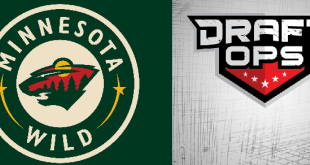A garden-variety breach of contract suit quickly became a case with precedent setting potential for the Daily Fantasy Sports (“DFS”) industry when, in a weird twist, one of the leading providers of DFS games asked a federal court in Minnesota to declare its fantasy sports offerings illegal under state and federal law.[i]
MINNESOTA WILD VS. EMIL INTERACTIVE GAMES
In May 2016, the National Hockey League’s Minnesota Wild filed a three-count Complaint in Minnesota against Emil Interactive Games (“Interactive Games”) – the parent company of DFS operator Draft Ops – alleging claims of breach of contract, account stated, and unjust enrichment. Per the Complaint, the Wild allege that, on September 4, 2015, it entered into a sponsorship agreement with Interactive Games, whereby Interactive Games would pay the Wild for the right to advertise at the Wild’s home arena. The Wild now claim that Interactive Games has refused to make the payments due under the sponsorship agreement and that it currently owes the Wild over one million dollars.
In response, Interactive Games has moved to dismiss the Wild’s claims, but for an unusual reason. While Interactive Games admits that it entered into the sponsorship agreement with the Wild, in what has to be considered a first for the DFS industry, the DFS provider actually argues that its fantasy sports contests are illegal under Minnesota and federal law. Since its contests are “illegal,” Interactive Games asserts its sponsorship agreement with the Wild is therefore void and unenforceable.[ii]
To make its argument, Interactive Games points to a “Termination and Survivability” clause in the sponsorship agreement, which grants Interactive Games the right to terminate the agreement “in the event either the NHL and/or State of Minnesota rule that Sponsor’s primary business activities are illegal or prevented by Rule or law.” Accordingly, the DFS provider argues that:
[a]s a result of Minnesota’s failure to legalize online DFS … the subject Sponsorship Agreement is rendered void and unenforceable. Consequently, compelling the Parties to enforce the terms of the Agreement, would be a potential violation of the Unlawful Internet Gambling Enforcement Act, (UIGEA), and the Illegal Gambling Business Act of 1970 (IGBA)… subjecting all parties herein to criminal liability both on Federal and State levels. [iii]
In order to avoid paying the Wild the money allegedly owed under the sponsorship agreement, Interactive Games has, in essence, asked the federal district court to declare that its DFS games are illegal gambling activities in violation of Minnesota law, and therefore, federal law as well.
LACK OF JUDICIAL PRECEDENT
The federal court’s response to Interactive Games’ argument will be particularly important to the DFS industry, because it is largely a case of first impression. While recent cases have touched on the legality of fantasy sports, no federal court has ever expressly ruled on the legality of DFS. For example, in 2007 the U.S. District Court for the District of New Jersey held that the payment of a one-time, nonrefundable entry fee to participate in seasonal fantasy sports did not constitute an illegal wager or bet pursuant to a New Jersey Qui Tam statute.[iv] The court in Humphrey v. Viacom, Inc., however, only opined on the legal status of traditional, season long fantasy games – not DFS contests. Further, the Humphrey court also did not address the issue of whether fantasy sports leagues are “games of chance” in deciding the case.
Similarly, the Supreme Court of New York for New York County – New York’s trial-level state court – conducted hearings last year in the case of People v. FanDuel, Inc. There, the court held that “DFS involves illegal gambling,” as defined under New York law, but also specifically held that its decision to grant a preliminary injunction against the DFS companies was “not a final determination of the merits and the rights of the parties.” Further, FanDuel and DraftKings have since appealed the trial court’s ruling, leaving open the possibility that the New York court of appeals could overturn the decision if legislation legalizing DFS in the state is not passed in the coming months.
POTENTIAL IMPACT
Since the Supreme Court of New York’s ruling in December, lobbyists for the fantasy sports industry have embarked on an unprecedented state-by-state push for legislation clarifying the legal status of fantasy sports. Yet in many states – particularly in those where there legislation does not appear imminent – companies offering DFS contests continue to operate in a legal “gray” area, in large part due to the lack of judicial precedent directly analyzing the legality of DFS.
Furthermore, numerous state attorney generals have issued opinions stating that DFS constitutes illegal gambling under their respective state laws. These opinions, however, are typically only advisory in nature. Formal court opinions, on the other hand, carry significantly more precedential value than individual state attorney general opinions, and to date, no federal court has directly opined on the legality of DFS. Accordingly, a conclusive opinion issued by the Minnesota district court on Interactive Games’ motion could be highly influential in determining the current legal status of DFS – not just in Minnesota, but in those states with similar laws as well.
Even if the district court declines to directly rule on the legality of DFS under Minnesota law, this alone could have a substantial effect. Interactive Games must satisfy a high legal burden in order for the court to grant its motion. It is therefore possible that the court could simply “punt” the issue by, for example, opining that whether DFS constitutes illegal gambling is not a question of law for the court to decide at the pleading stage of the case, but rather a case-by-case, fact-intensive question for a jury. Given the circumspect application of law in some of the recent attorney general opinions – in which the state AGs broadly conclude that all DFS contests are “contests of chance” and therefore constitute illegal gambling – the hypothetical ruling above could in and of itself provide guidance, by advising operators, lawmakers, and courts that there is no hard and fast rule concerning the legality of DFS, and possibly even slow the tide of overly conclusive attorney general opinions. As such, no matter how the court rules, its opinion may have far-reaching implications on the legal landscape of DFS.
[i] This is a guest contribution by Michael Albert. Michael is an attorney with the Franklin Law Group, with a focus in sports law and litigation. Michael received his J.D. from the IIT Chicago-Kent College of Law in 2015, and his B.A. in political science from Indiana University in 2012.
[ii] A contract that requires a party to perform an illegal act is typically void and unenforceable as being against public policy.
[iii] To trigger a violation of either the Unlawful Internet Gambling Enforcement Act or Illegal Gambling Business Act, an actor must commit a “predicate offense” at the federal or state level (e.g., violate a particular state’s anti-gambling laws).
[iv] Humphrey v. Viacom, 2007 WL 1797648 (D. N.J. 2007) (“[a]s a matter of law, the entry fees for Defendants’ fantasy sports leagues are not “bets” or “wagers” because (1) the entry fees are paid unconditionally; (2) the prizes offered to fantasy sports contestants are for amounts certain and are guaranteed to be awarded; and (3) defendants do not compete for the prizes.”).
 The Sports Esquires Putting Sports on Trial
The Sports Esquires Putting Sports on Trial





One comment
Pingback: Sports Law Links - The Sports Esquires